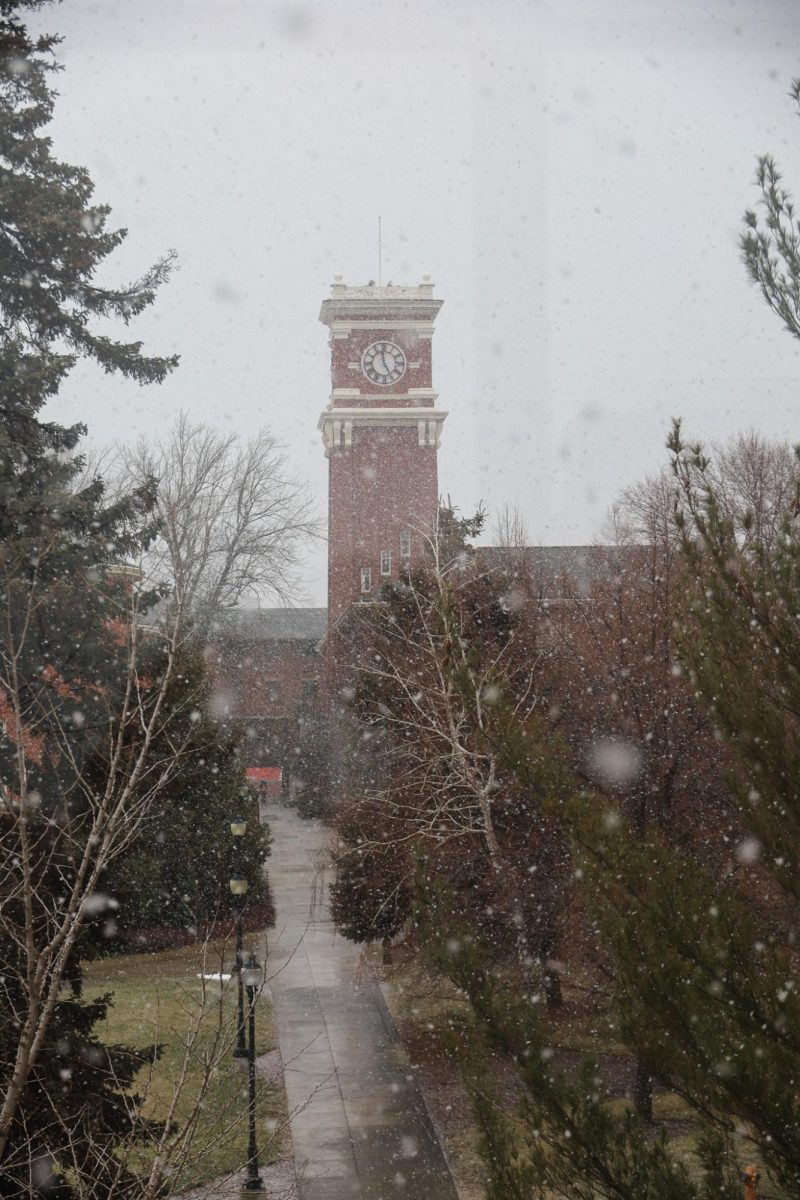WSU Pullman announced its first case of whooping cough on campus on Sept. 24. By Oct. 1, four new cases of whooping cough had been announced.
Whitman County had been anticipating the arrival of whooping cough in Pullman as Washington state was identifying cases earlier in the year during the spring, said Chris Skidmore, director of Whitman County Public Health.
Dr. Sunday Henry, physician and WSU Medical Services & Cougar Health director, said the school is now dealing with 17 positive whooping cough cases.
Whooping cough results from the Bordetella pertussis bacteria and classically presents itself as a long-lasting “staccato” sounding cough that also causes difficulties with breathing, Henry said. Those experiencing similar symptoms are urged to seek testing, while the WSU community is encouraged to get vaccinated. More information on WSU immunization efforts like Flu Shot Friday and COVID vaccine distributions can be found at Cougar Health Services website.
Based on public health updates from Whitman County, Henry said WSU understood whooping cough within the community was a possibility and prepared accordingly. As a result, Cougar Health was able to prepare for increased testing and obtain the necessary medications like azithromycin to deal with pertussis.
“We knew there were a lot of cases in the area and we were prepared for at some point to need to be able to test a lot, and if you test a lot, you’re going to find more cases,” she said. “But then in this case, there’s a treatment, there’s an antibiotic treatment and then hopefully we can prevent the spread.”
Due to the nature of a college campus and how it favors “congregate living,” areas like WSU offer respiratory illnesses a place to spread, she said. Due to the influx of students every fall at the beginning of the school year, it is usually to be expected that there will be an infectious disease to deal with.
This could also be attributed to this time of year, also called a “respiratory season,” when there is a spike in respiratory illnesses like the flu, COVID-19 and respiratory syncytial virus, Skidmore said. As whooping cough is occurring this respiratory season, there is more need for testing to make it easier for healthcare providers to distinguish pertussis from other possible illnesses.
One other reason why illnesses like whooping cough can manifest in multiple cases is due to immunization levels, Henry said.
“Unlike some other vaccines, the [whooping cough] vaccines do not give you lifelong immunity, nor does getting the illness,” she said.
This can be amplified by the general age demographic of college students as well, Henry said.
“For folks that are on university campuses, the most likely time that you last received a pertussis vaccine was when you were 11 or 12, and this vaccine is repeated at year 10, so that means you’d be 21 or 22,” she said. “So 17, 18, 19 year olds are in this spot where we know immunity is waning,” she said.
Decreases in those receiving their routine vaccinations, which could be attributed to people likely not getting their vaccines during COVID-19 and generally being “less likely to get their vaccines,” could also have been attributed to the occurrence of an issue like this, Henry said.
“This decreases the overall amount of immunity in the community, and then allows it to break through like this, versus if we have a high level of vaccine and immunity,” she said. “Then, when you do have a case or two, everyone around you has immunity and you don’t have the spread,” she said.
Among those who currently have whooping cough at WSU, there is a mix of those who are vaccinated and unvaccinated, Henry said.
Current and prospective students must also remember that, per WSU’s Executive Policy 43 was approved in 2022, obtaining COVID-19, Hepatitis B, measles, meningitis, pertussis, tuberculosis and varicella vaccinations are requirements for registering for classes, she said.
“So knowing that we implemented that last fall, we have a couple of classes on campus that now hopefully have a higher immunity than before for pertussis,” she said.
While it cannot be said for how much longer pertussis will remain in Whitman County, the WSU community is encouraged to do what they can to be careful and limit cases, Henry said.
“It takes all of us together, right? We need all of the students to say, Hey, I’m sick today, I’m going to wear a mask and stay home and I’m going to wear a mask until I’m feeling better, and I’m going to be more likely to seek care because this pertussis thing is going around,” she said.
It is also best that those with whooping cough and anyone who might have been exposed to it avoid spreading the illness to those more vulnerable to it, Skidmore said.
“We just really try to bring out a lot of awareness, really try to identify to the public that those really sensitive populations are the vulnerable populations,” he said. “Infants under the age of one are the real group of people that we’re really trying to protect here, as well as pregnant people that are in their third trimester. Those infants, we want them to get vaccinated as soon as they can, and then that will give them some protection.”
As the holidays near, students and Whitman County residents are encouraged to remain vigilant before traveling, Skidmore said.
“There is a chance that this could further spread to other areas when kids go home for Thanksgiving or Christmas,” he said. “So I always encourage folks that, before they leave to go home, that if they are symptomatic, get treated if they can so [they] can limit that burden that we put on the rest of the Washington state communities.”










